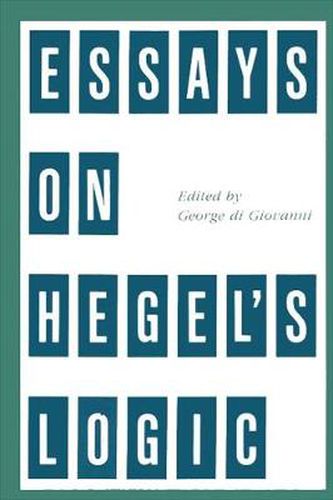Readings Newsletter
Become a Readings Member to make your shopping experience even easier.
Sign in or sign up for free!
You’re not far away from qualifying for FREE standard shipping within Australia
You’ve qualified for FREE standard shipping within Australia
The cart is loading…






This book, covering all aspects of Hegel’s logic, raises fundamental issues as well as particular problems of interpretation. It discusses whether a speculative logic is possible at all and whether Hegelian logic requires a metalogic or whether it can and ought to make an absolute beginning. It examines, conceptually and historically, the being-nothing dialectic, the relation of essence to show (Schein), and Hegel’s treatment of the modal categories. It proposes radically different views of the role of the ‘understanding’ in Hegelian logic and a radically different view of the necessity underlying it. The book concludes with the argument that Hegel’s dialectical logic can cope with a problem that Aristotle’s could not. Essays on Hegel’s Logic provides a welcome introduction to those interested in this central piece of Hegel’s system, and it poses the question of whether, and how, the logic provides a closure to the system. In different ways, and with different degrees of explicitness, the book deals precisely with this issue.
$9.00 standard shipping within Australia
FREE standard shipping within Australia for orders over $100.00
Express & International shipping calculated at checkout
This book, covering all aspects of Hegel’s logic, raises fundamental issues as well as particular problems of interpretation. It discusses whether a speculative logic is possible at all and whether Hegelian logic requires a metalogic or whether it can and ought to make an absolute beginning. It examines, conceptually and historically, the being-nothing dialectic, the relation of essence to show (Schein), and Hegel’s treatment of the modal categories. It proposes radically different views of the role of the ‘understanding’ in Hegelian logic and a radically different view of the necessity underlying it. The book concludes with the argument that Hegel’s dialectical logic can cope with a problem that Aristotle’s could not. Essays on Hegel’s Logic provides a welcome introduction to those interested in this central piece of Hegel’s system, and it poses the question of whether, and how, the logic provides a closure to the system. In different ways, and with different degrees of explicitness, the book deals precisely with this issue.